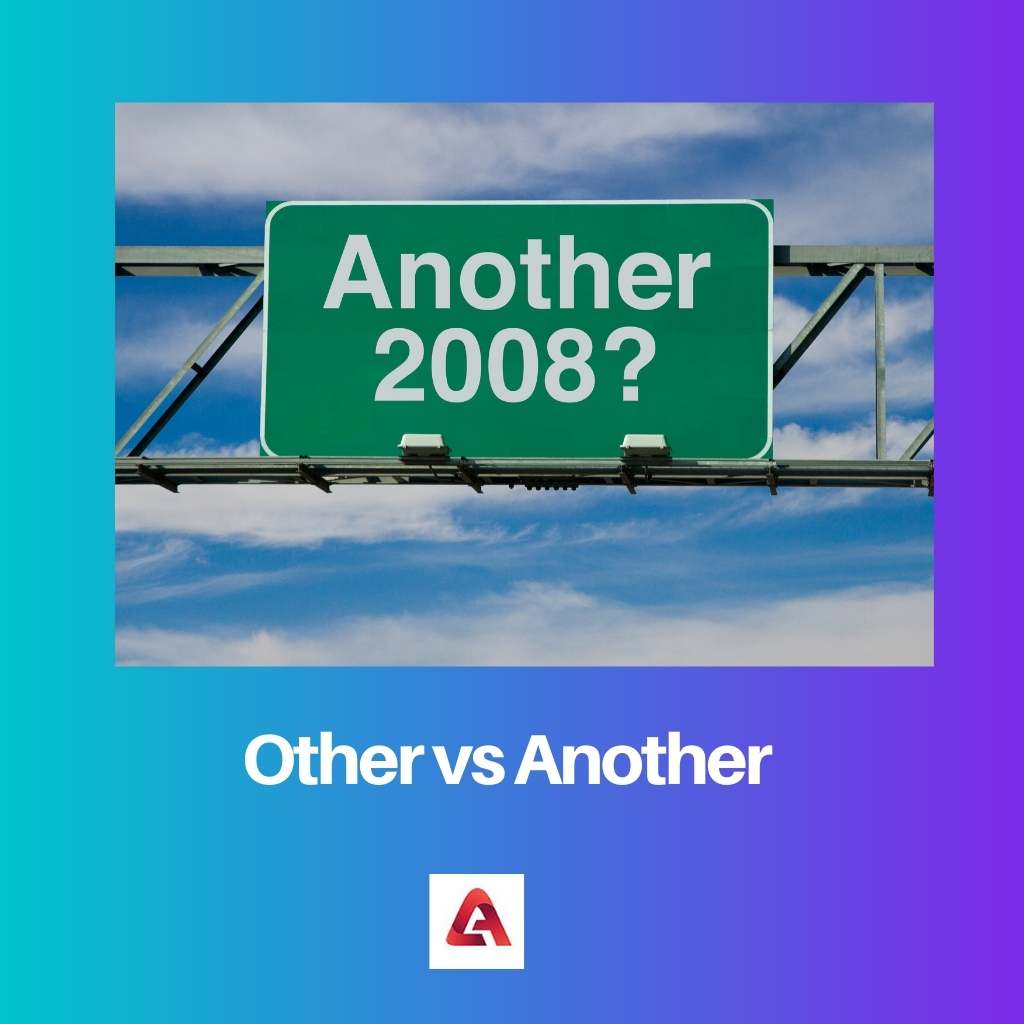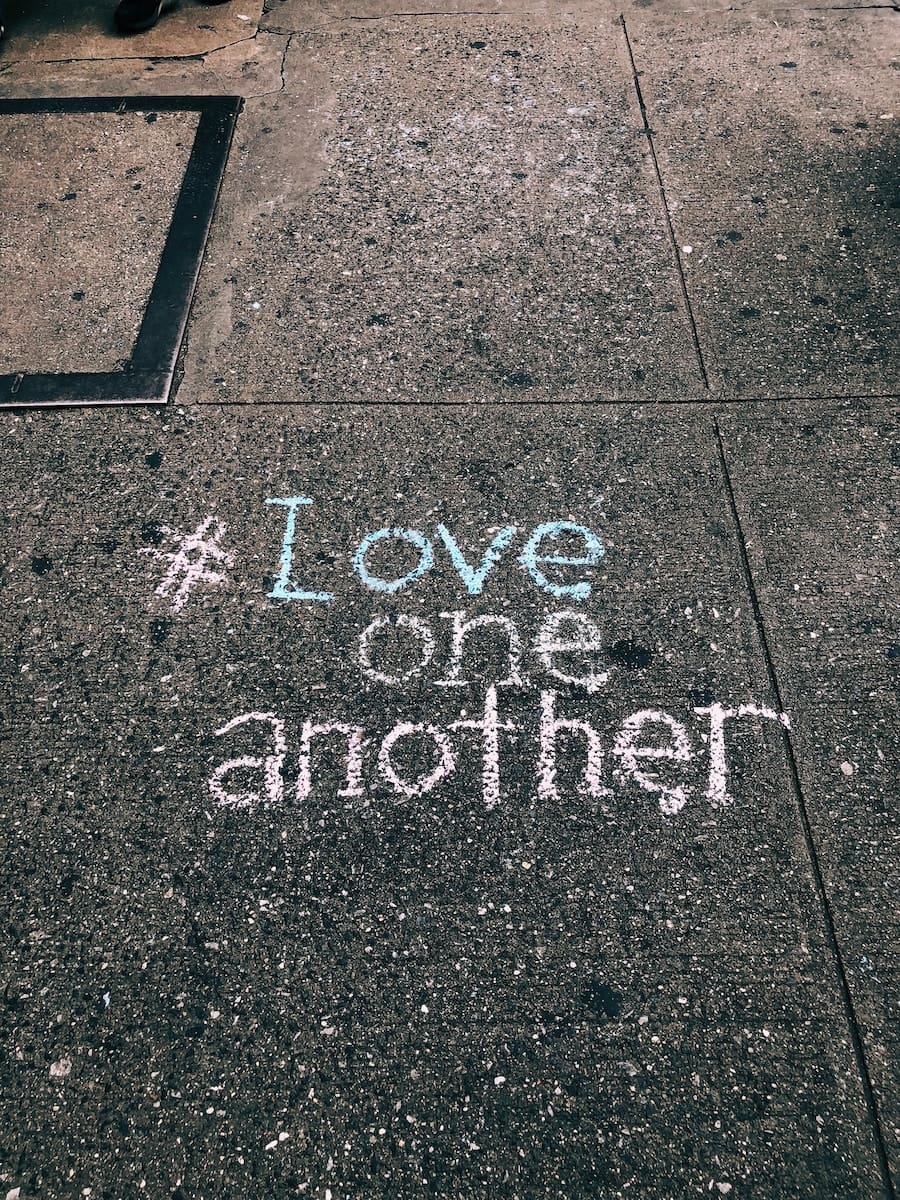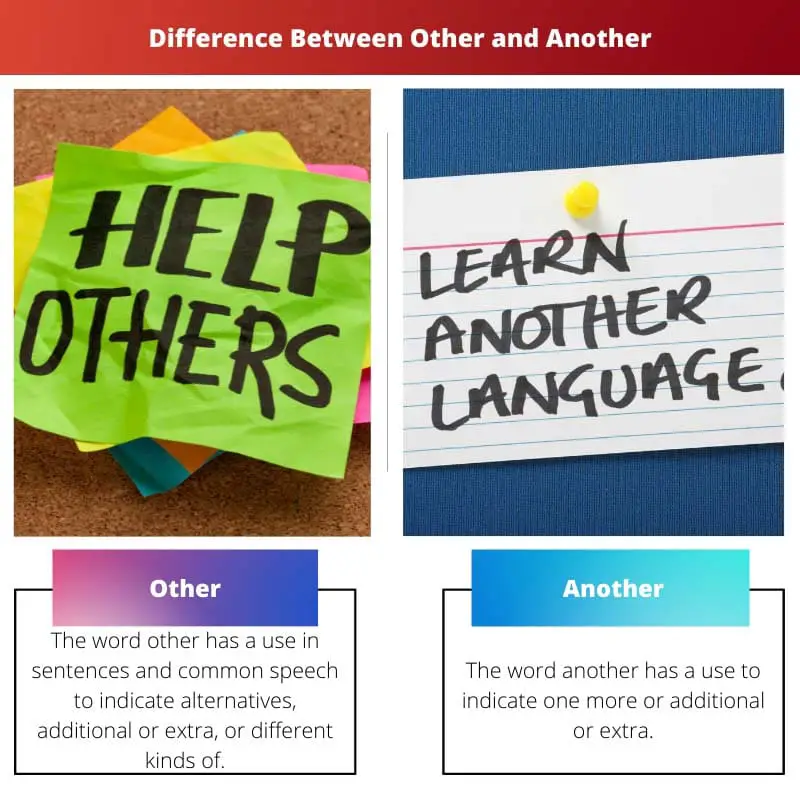When it comes to English, the words can be tricky to understand for their synonymy. The words other and another form on such pairs.
While the two words sound synonymous, they are practically different. Both the connotations and practical application of the words other and another are varied immensely.
Key Takeaways
- “Other” modifies plural nouns, indicating additional items or people; “another” modifies singular nouns, referring to one more item or person.
- “Other” requires a noun following it, while “another” can be used alone or followed by a noun.
- “Other” implies a distinction among multiple options, whereas “another” suggests adding to a current option.
Other vs Another
Other is a word in the English language or during regular speech that shows additional, extra, or different kinds of a person or thing already mentioned. Another is a word in English that stands for an additional or alternative or extra person or thing that has already been mentioned.

By definition, the word other means alternative, additional or extra, or different types of. For instance, do you have this box in other sizes as well? Here other refers to alternative options.
The word other is of Germanic origin. It has a use in sentences as a pronoun, adjective, and determiner. For example, Sam is a studious kid, and the other boy with him scores straight Ds.
Here, the other serves as a determiner.
By definition, the word another means one more or an alternative or an additional, or extra. As a determiner, another has been used with singular non-specific countable nouns.
For instance, there is another grey-haired boy in the class. The word another was in use as an other until the 16th century.
Comparison Table
| Parameters of Comparison | Other | Another |
|---|---|---|
| Definition | The word other has a use in sentences and common speech to indicate alternatives, additional or extra, or different kinds of. | The word another has a use to indicate one more or additional, or extra. |
| Used with | Other has a use with plural nouns. | Another has a use with singular non-specific countable nouns and plural nouns. |
| Practical application | Other has a practical application as a pronoun, determiner, and adjective. | Another has a practical application as a pronoun and determiner. |
| Idioms phrases | every other, every alternate | one after another, of one kind or another |
| Examples | Do you like these glasses or the other ones? Don’t bother about what other people think. | Can I have another chocolate? I am not sure if there’s another way to reach the market. |
What is Other?
According to the Cambridge dictionary, other means alternative, additional or extra, or different types of. For example, there are other types of computer processors in the market.
In the preceding sentence, the other denotes alternative options. Additionally, other, as a determiner, has use with plural nouns and singular, uncountable nouns.
For instance, please bring all the other chocolates left in the refrigerator.
As a pronoun, other take a plural form. For example, I’ll bring two stacks of books today and send the others tomorrow.
Moreover, the word other can refer back to something which has already been mentioned before. For example, Michael has two dogs, one is a pug, and the other is a golden retriever.
Here, the other denotes the second of the two dogs.
The word other can also have a use at the end of the listing to indicate more articles without specifying all of them. For instance,
Shanaya bought all the essentials, including clothes, shoes, medicines, and other things for everyday use. Some idioms, including other are every other and every alternate.
For example, Bob visits the Church every other day.
Conclusively, other has a use as a pronoun, a determiner, and an adjective. In less popular terms, the word other can also be used to denote the opposite.
For example, hate is the other of love. Other may also mean different in nature or kind. For instance, I wouldn’t accept Jack in any other way than he is. To sum up, the word other has multi-facet meanings.

What is Another?
According to the Cambridge dictionary, another means one more or an alternative or an additional or extra. As a determiner, another has use with singular non-specific countable nouns.
For example, would you like another cup of tea?
Another also has a use in sentences as a pronoun. For instance, the candidates for the position are shortlisted by one committee. Then, the list goes to another committee for further evaluation.
Here, another refers to an additional committee. Another may also refer to a different person or thing of the same type. For example, isn’t there another word that means the same as honesty?
Some phrases that include another are another thing, another time, not another, another two. An idiom using another is one after another and of one kind or another.
For example, the Thompsons are sending all their children abroad one after another. The word another was in use as an other until the 16th century.
Conclusively, another has a use as a determiner and a pronoun. Some additional examples using another are I went down the street and saw one day being chased by another.
The grocery store was out of bread and told me to come back another day. Thus, the word another has varying uses depending upon the context of the situation.

Main Differences Between Other and Another
- The word other has use to indicate alternatives, additional or extra. On the other hand, the word another has use to denote one more or additional, or extra.
- Other has a practical application as a pronoun, determiner, and adjective. In contrast, another has a practical application as a pronoun and determiner.
- Some idiom phrases, including the word other, are every other and every alternate. Conversely, some idiom phrases using another are one after another and of one kind or another.
- Other has use with plural nouns. In contrast, another has use with singular non-specific countable nouns and plural nouns.
- An example of other in a sentence is Jack is an engineer, and the other guy in the room is a doctor. On the other hand, an example of another in a sentence: please get me another bottle of soda.




